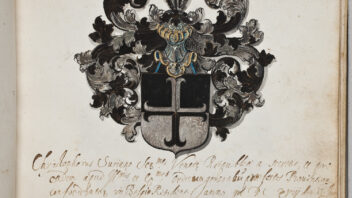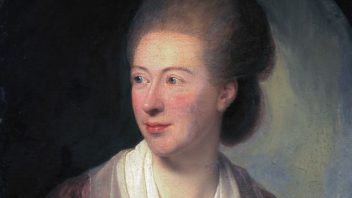Perceptions of fiction project challenging English literary canon receives £300k
The project Perceptions of fiction has received £300,000 from the British Arts and Humanities Research Council (AHRC). It’s a new project by University of Wolverhampton in collaboration with the Huygens Institute, in which researchers will investigate readers’ opinions about the literary quality of contemporary fiction.
In October 2020, the Novel Perceptions researchers will launch the ‘2020 Reader Review’ survey that asks readers to rate the literariness of 400 recent novels. The team will also use innovative computational methods to analyse the language and style of the novels. The goal is to examine why fiction is perceived to be literary; what qualities does a text need to have, and how do factors such as genre, theme, and the gender of the author shape people’s perception. The interdisciplinary project, entitled ‘Novel Perceptions: towards an inclusive canon’, will run for 18 months.
The outcome will contribute to the debate about how to rethink the English literature canon, the body of works that are generally agreed to be good, important, and worth studying, to ensure it is diverse and inclusive; fit for the twenty-first century.
The Novel Perceptions project is linked with the University of Wolverhampton’s existing collaboration with a host of project partners including the BBC, Libraries Connected, and the British Library, amongst others, for the BBC’s engagement project ‘Novels That Shaped Our World’, a year-long celebration of three centuries of the English language novel. In January, the Wolverhampton researchers launched a series of online surveys to understand how the public engages with the 100 novels that were chosen by a panel including novelist Kit de Waal and journalist Stig Abell. The team also launched ‘Novel Memories’, research that aims to understand how people remember fiction they read in the past, and what happens when fiction is re-read. The Novels That Shaped Our World surveys comprise the largest ever investigation of English language fiction.
The Principal Investigator of Novel Perceptions, Professor of English Literature Sebastian Groes, said: “From Black Lives Matter to the #MeToo movement, we are living in a time when many emancipatory movements demand change to the way in which society is run.
“Novel Perceptions asks us to look critically at the English literature canon. From an early age we are instilled with the idea that we have to read and enjoy highbrow literature.
“However, oftentimes literary scholars are hard-pressed to explain why books deserve a place in the canon. Rather than relying on the authority of educational institutions and literary critics, our project listens to the voice of the people to understand which books they think are good.”
Professor of Computational Literary Studies Karina van Dalen-Oskam said: “Novel Perceptions seeks to replicate Dutch research undertaken in the project ‘The Riddle of Literary Quality’. The aim of the project is to analyse readers’ perceptions, but the results will quite naturally lead to raising awareness and to challenging established reading habits.
“In turn, this will help us promote a more diverse, inclusive reading ‘diet’. We have to be able to read all kinds of texts to successfully navigate our way through life.”
The researchers hope their work will help stimulate reading cultures and library visits along with raising awareness about canonicity in relation to current debates surrounding inclusivity, diversity and bias through high impact public engagement events, social media activities, and collaboration with literary festivals across the UK and publications.
Project partners include the British Library, Libraries Connected, Writing West Midlands, the Library and Information Association (CILIP), the University of Exeter’s Wellcome Centre for Cultures and Environments of Health. Other researchers on the project are Dr Aidan Byrne (English Literature, University of Wolverhampton), Dr Laurie Hanquinet (Computational Sociology, Free University Brussels), and Dr Tom Mercer (Psychology, University of Wolverhampton).
The project will be launched at the Being Human Festival on Monday 16th November. You can follow the project via its website and on social media: Twitter and Facebook.
Find out about University of Wolverhampton’s School of Humanities on their website.
Read more about The Riddle of Literary Quality on the website of Huygens ING.




